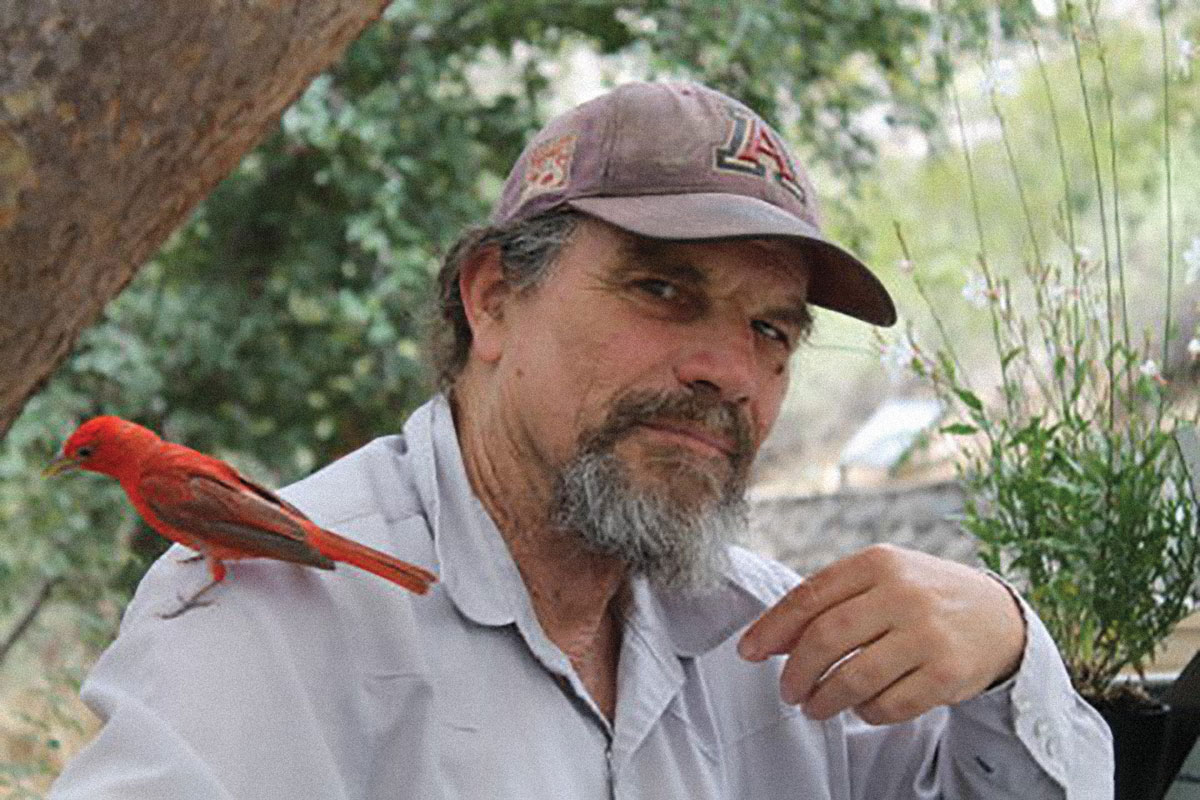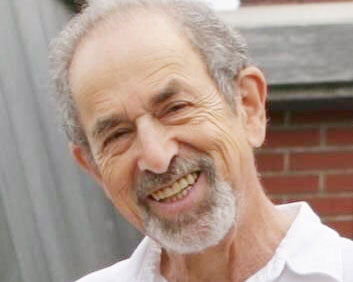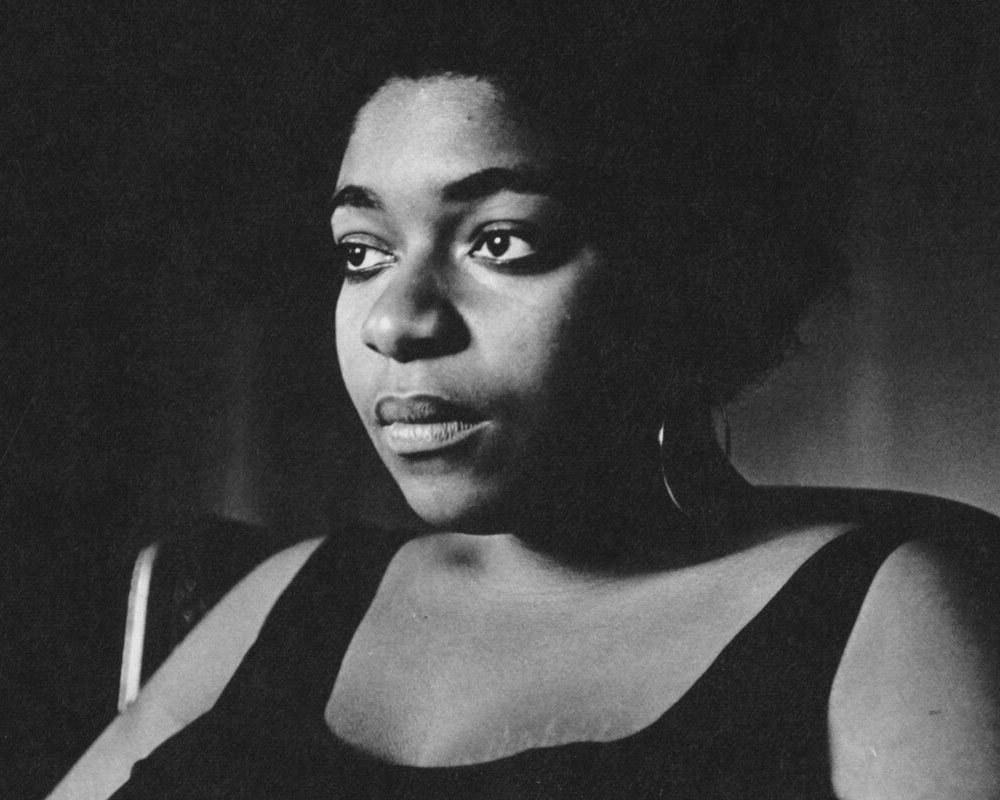Eric Bruce Henderson ’72

March 31, 2020, in Tucson, Arizona, from cancer.
A dedicated scholar of his beloved Southwest, Eric began his ethnographic fieldwork in 1972, working with the Navajo on the Lake Powell Project, a trailblazing environmental impact study.
Born in Los Angeles, Eric followed in the footsteps of his sister, Robbin Henderson ’63, and came to Reed. After one year, he transferred to Portland State College (now Portland State University).
“Eric thought that Reed was an excellent college and offered a good foundation for a scholar’s life,” Robbin remembered. “At the time he attended, the social milieu at the college was not congenial to him, and he transferred to Portland State, where he was mentored by the esteemed anthropologist, Jerrold Levy.”
During his college years Eric was extremely active in the antiwar movement in Portland. He graduated with a double major in anthropology and history. He finished his PhD in anthropology at the University of Arizona, having taken time off to earn his JD with Highest Distinction from the University of Arizona College of Law in 1982.
He clerked for Justice Stanley Feldman on the Arizona Supreme Court and for Judge Joseph Livermore on the Arizona Court of Appeals. For six years, he was counsel to the minority leader in the Arizona state house, where he was instrumental in establishing procedures for the impeachment proceedings and trial of Governor Mecham. It was the first time since 1929 that a U.S. governor had been impeached, and resulted in the conviction of Mecham by the state senate.
But Eric’s true passion was anthropology. His major research contributions were centered on the Navajo Nation. In the 1970s, he was a contributor to a trailblazing environmental research study, the Lake Powell Research Project, which brought a consortium of university groups together to study the biological and social effects and ramifications of water resource management in the region following the construction of the Glen Canyon Dam across the Colorado River. His dissertation, “Wealth, Status and Change among the Kaibeto Plateau Navajo,” examined the transformations of Navajo social structures and lifeways on the western reservation from the 1920s through the devastating stock reduction programs of the 1930s and into the 1970s. In the 1980s, he worked on the Navajo Aging Project, another multiyear study. His last fieldwork was in the 1990s as coinvestigator for the Case Control Studies of Alcohol Abuse on the Navajo Reservation.
Giving up law, he then took a 50% pay cut to become a full time college teacher. He taught criminology and anthropology at the University of Northern Iowa before moving to Great Basin College in Elko, Nevada, where he spearheaded the development of a bachelor’s degree in integrative studies and co-directed a widely popular archaeological field school with his wife, the anthropologist Amy Henderson.
Eventually Eric returned to the Southwest at Northland Pioneer College, in extremely rural, impoverished northeast Arizona, landing in Holbrook, just three miles from the Navajo Nation. He served as dean of arts and sciences, and briefly as vice president for learning, always seeking ways to design curricula to enlarge opportunities and to mentor students from this vast area. He also taught at Diné College on the Navajo Nation, UA College of Law, and Arizona State University. In his last four years, he retired from administration to teach full time again. His classes ranged from social anthropology to archaeology to physical anthropology to sociology to criminology to political science and government.
Eric was an extraordinarily generous mentor and colleague with boundless intellectual curiosity and a deep passion for scholarly argument as well as collaboration. He blended intellectual rigor, political passion, empathy, good humor, and brutally honest and practical feedback in equal measure. In January, he was hiking in the Petrified Forest National Park, his “neighborhood” park. In February, he was diagnosed with metastasized cancer, and he died in March. He is survived by his wife, and collaborator, anthropologist and illustrator Amy Henderson; his children Xander, Tanya, Kai, Colin, and Elinor; his sister Robbin; and his brothers, Dal and Mark Henderson. Robbin’s son, Daromir Rudnyckyj, followed in his uncle’s footsteps as a cultural anthropologist.
“Eric’s intelligence and kindness inspired deep friendships,” said Robbin. “His integrity inspired respect, even among those whose views differed from his, and his lasting gift was his dedication to his students, whom he challenged to think critically and reflect deeply.”
Appeared in Reed magazine: December 2020





![Photo of Prof. Marvin Levich [philosophy 1953–94]](https://www.reed.edu/reed-magazine/in-memoriam/assets/images/2022/LTL-levich1.jpg)
![Photo of President Paul E. Bragdon [1971–88]](https://www.reed.edu/reed-magazine/in-memoriam/assets/images/2020/Bragdon.jpg)
![Photo of Prof. Edward Barton Segel [history 1973–2011]](https://www.reed.edu/reed-magazine/in-memoriam/assets/images/2020/Segel.jpg)








































































